The respondent in this case is a 24 year old male from Afghanistan. It was his second push-back from Greece within that last year. He was documented by the Greek Asylum Office and the UNHCR and also had an appointment in order to receive his Greek “white card” (International Protection Applicant Card) for refugees on 7th August 2020.
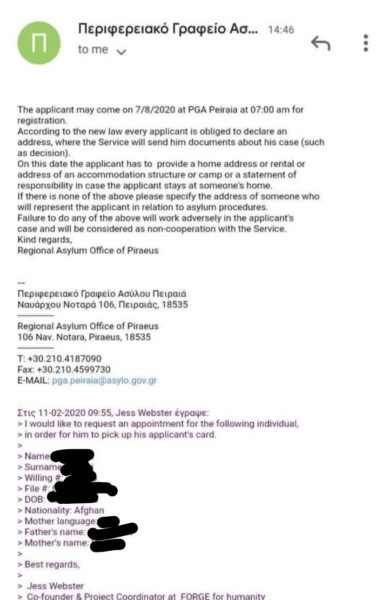
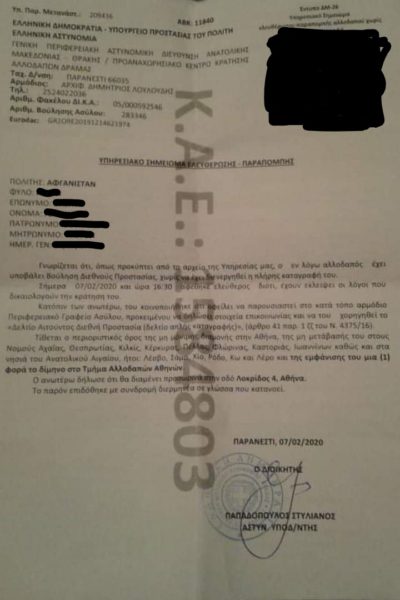
On the evening of 15th May 2020 he was arrested together with another 14 people in the streets of Ladochori (harbor city of Igoumenitsa). At that time he was on a pedestrian walkway close to a street with his friends when they saw Greek police officers and understood, they were about to be arrested. They attempted to escape but were finally caught by officers coming from the opposite side. There were eight officers in the streets, some in uniform, some in civil clothing.
“They don’t want you to have a phone, so you can call no-one to ask for help. […] If you were trying to escape, they would take you to the side and beat you so much. […]”
Two minors of the ages around 13 or 14 years were allowed to leave. A group of 15 young men between 16 and 30 years of Afghan and Kurdish (Iraq) origin were arrested. Their phones were taken from them. Then the police handcuffed and escorted them to the police station which was within 8 or 9 minutes walking time from the spot of the arrest (most likely Astinomiko Tmima in Ladochori: https://goo.gl/maps/TsFgszAkoTqYdah59). Attempts to escape by people in the group were followed by beatings from the police.
“Papers were torn apart and thrown in the paper bin. […] When they arrest you they don’t listen to you. They know you have the papers, they checked the papers. They don’t allow you to ask for water. What would happen if you asked for asylum.”
At the police station, each of the group-members was searched thoroughly by two police officers. They had to take all clothes off (except for underwear), shoe-laces were taken out of their shoes and whatever they carried with them was taken away.
“[…] at police station, we were beaten a lot. […] If someone was trying to shout or scream or simply asking for something they were beating them […] for example asking for toilet.”
They only got their clothes back afterwards. Then they were put into one cell together. Whenever someone raised their voice or simply asked for assistance (e.g. to go the toilet) the police would come and beat the person heavily. Out of fear they did not dare to claim their rights and status according to their papers.
The group was kept in the cell for one night. In the early morning of the next day (16th May 2020) at 06:30 they were put into a police bus. It had very dark cabins inside from which the respondent couldn’t see the outside. Four people were put in each cell and the doors were locked. They drove for around 10 hours until they arrived at the “camp”.
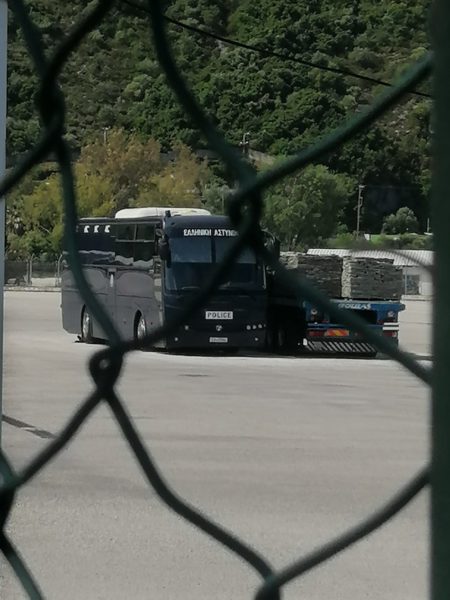
With “camp” the respondent referred to a “very dirty, nasty place” in the forest close to the river Evros. There was a building which had one floor only, and had a big hall. The group was put there after they had to take their clothes off again for a second search of all their belongings. In the hall there were more than 100 other people waiting. They had stayed there for one or two nights in some cases, others for almost an entire week, during which they didn’t receive food, water or anything else.
“whenever we were trying to look in another direction, they [the officers] were coming and beating”
The officers at the place were “very violent and cruel”. All detainees in the camp had to keep their heads down at all times. Otherwise they would be beaten with heavy batons. (This in combination with the short time the respondent spent in the “camp” are the reasons why he is not perfectly sure about the other group-members of the push-back, other authorities present, other buildings or the environment.)
The officers mostly had their faces covered with ski masks and wore uniforms which the respondent compared to those of the police that arrested him the other day (“Greek city police”). As he was not allowed to look up, he is only sure about 7 or 8 different officers being present.
“In the camp, most of the police faces were covered, but one wasn’t. He had a baton in his hand. He was beating every refugee when they were embarking them in the car.”
The images below depict some of the bruising conferred onto the body of one of the individuals during the pushback:
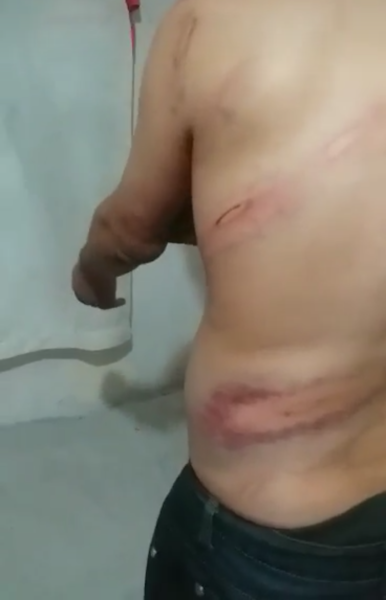
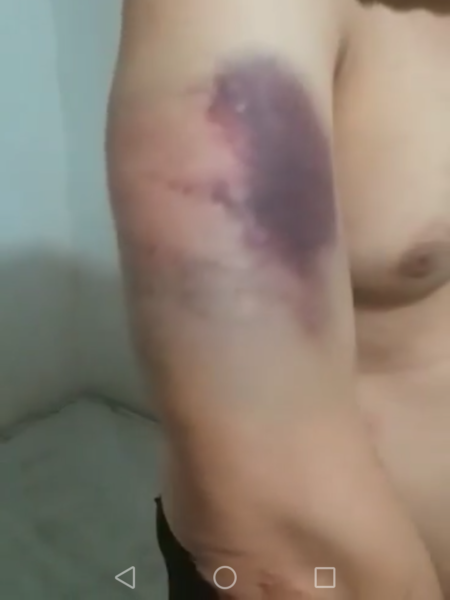
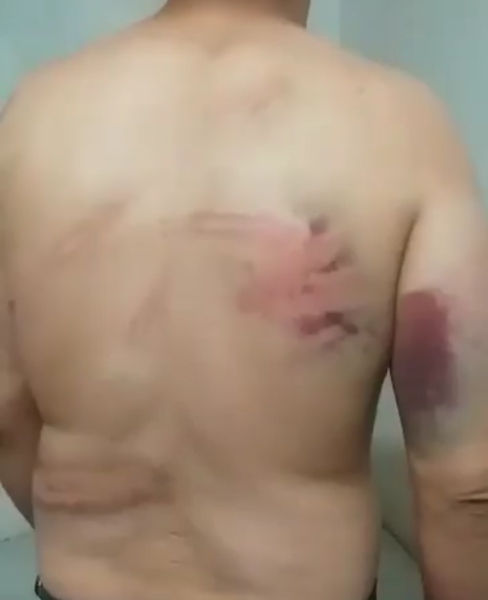
The group of 15 was “lucky” as they only were kept in the main hall for some minutes. Then the entire group of detained persons departed. They were put in a van. It was described as a big, old military vehicle of green color. About 120 people were forcefully loaded on the vehicle which was far beyond its capacity.
Then they drove for 40 to 50 minutes. The vehicle only had two small windows through which the respondent could see the forest, small villages and farming lands. They arrived at a place close to the river. The respondent remembered thousands of mosquitoes were flying around. 15 to 20 people at once were embarked into a 5 to 6 meter long boat and taken to the other/Turkish side.
The Turkish army, when finding them, gave some old jackets and other clothes to those who were insufficiently dressed during the cold weather in an obvious way.
“[the soldier] told us that Turkey was under Quarantine or Lockdown and they couldn’t take them to a camp or shelter. So they told them to go to wherever they wanted.”
The respondent stayed outside at the site close to the river for the night. The next day (17th May 2020) a josoor partner team got in in contact with them and provided them with food and goods. Then they started walking towards Istanbul. They walked about 150 km themselves. At three different occasions different cars drove them for some distance after stopping next to them on the motorway they were walking at.
